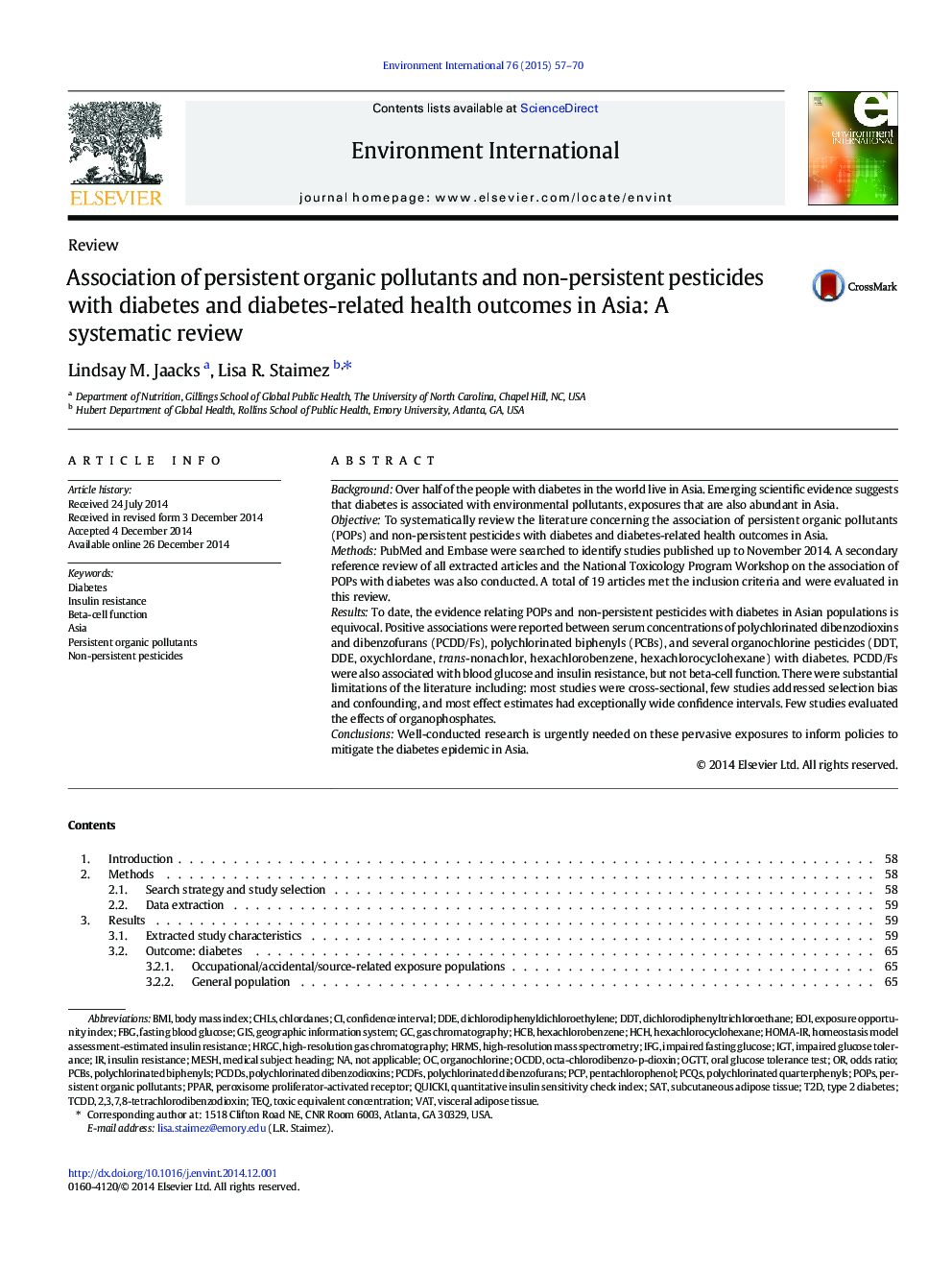| Article ID | Journal | Published Year | Pages | File Type |
|---|---|---|---|---|
| 6313747 | Environment International | 2015 | 14 Pages |
â¢Persistent organic pollutants (POPs) and non-persistent pesticide use is extensive in in the geographic context of Asia.â¢This systematic review examined associations of POPs and non-persistent pesticides with glucose metabolism and diabetes.â¢To date, the evidence in Asian populations is equivocal and major research gaps were identified.â¢Nonetheless, the literature suggests a positive association between select POPs and diabetes.
BackgroundOver half of the people with diabetes in the world live in Asia. Emerging scientific evidence suggests that diabetes is associated with environmental pollutants, exposures that are also abundant in Asia.ObjectiveTo systematically review the literature concerning the association of persistent organic pollutants (POPs) and non-persistent pesticides with diabetes and diabetes-related health outcomes in Asia.MethodsPubMed and Embase were searched to identify studies published up to November 2014. A secondary reference review of all extracted articles and the National Toxicology Program Workshop on the association of POPs with diabetes was also conducted. A total of 19 articles met the inclusion criteria and were evaluated in this review.ResultsTo date, the evidence relating POPs and non-persistent pesticides with diabetes in Asian populations is equivocal. Positive associations were reported between serum concentrations of polychlorinated dibenzodioxins and dibenzofurans (PCDD/Fs), polychlorinated biphenyls (PCBs), and several organochlorine pesticides (DDT, DDE, oxychlordane, trans-nonachlor, hexachlorobenzene, hexachlorocyclohexane) with diabetes. PCDD/Fs were also associated with blood glucose and insulin resistance, but not beta-cell function. There were substantial limitations of the literature including: most studies were cross-sectional, few studies addressed selection bias and confounding, and most effect estimates had exceptionally wide confidence intervals. Few studies evaluated the effects of organophosphates.ConclusionsWell-conducted research is urgently needed on these pervasive exposures to inform policies to mitigate the diabetes epidemic in Asia.
